In this regard, we first talked with our board members about the role of CEEMAN in promoting responsible management education in today’s dynamically changing societies. Some of our board members have been with us since the beginning, whereas some have joined lately. Together, they represent CEEMAN beyond Central and Eastern Europe. We asked each of them about the relevance of CEEMAN’s mission to build up management education that supports the development of society. They also shared their thoughts on the importance of excellence, social relevance, and innovation with regard to the CEEMAN IQA accreditation system. They also shared insightful personal testimonials.
We begin the “25 Years of CEEMAN” series with the following question to our board members.
What does CEEMAN mean to you and how do you see its role in promoting responsible management education in dynamically changing societies?
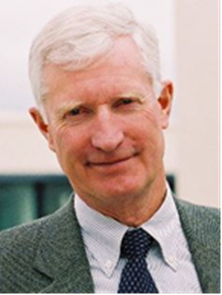 Derek Abell, professor emeritus, European School of Management and Technology (ESMT), Germany
Derek Abell, professor emeritus, European School of Management and Technology (ESMT), Germany
I have been involved with CEEMAN for the whole of its life, 25 years, and I haven’t really changed my mind. CEEMAN means to me an association of institutions in countries which are different. They are not the United States or Western Europe. They are countries in a special condition, where the standards that we use in developed countries do not necessarily apply. They need special attention. And I think CEEMAN is an organization that pays special attention to the special needs of countries that have rising economies. I am using the word "rising", not "emerging", because some of these countries are rising faster than the old countries that are actually experiencing flat or even declining growth. CEEMAN is an organization that pays special attention to special needs.
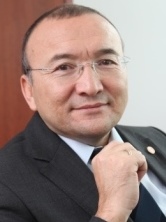
Assylbek Kozhakhmetov, president of Almaty Management University (AlmaU), Kazakhstan
First of all CEEMAN to me is a family of responsible people and responsible organizations. The role of responsibility is not clear in dynamic societies. It is our mission to explain, and clarify that role, and push business education and management education in the right direction.
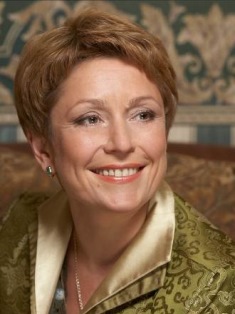
Irina Sennikova, CEEMAN vice-president, rector of RISEBA University of Business, Arts, and Technology, Latvia
To me CEEMAN is a very human, customer-oriented, management development association, which has its origins in Central and Eastern Europe, but which has now gone global. It has built a lot of experience in transforming management education in Central and Eastern Europe and is now sharing its knowledge with other dynamic societies. Most of us, having started working in business schools when management education was almost nonexistent, went through significant transformation processes, and CEEMAN, in my mind, played a very instrumental role in this. RISEBA as an institution, and me personally, grew and developed together with CEEMAN.
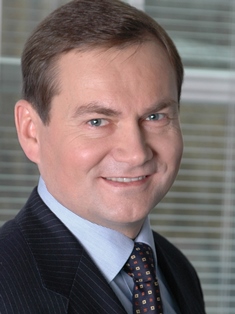
Virginijus Kundrotas, CEEMAN vice-president, dean of Adizes Graduate School, US, president of the Baltic Management Development Association (BMDA), Lithuania
For me CEEMAN has always been like an agent of change in management education. From the very beginning of the establishment of CEEMAN, it has been serving as a vehicle that inspires new ideas and adapts the needs of business schools in Central and Eastern Europe, aligning them with the needs of management education. It took good learnings from more mature business schools in Western countries without forgetting innovative ideas and new approaches to what our region could bring. So it brought together what was really good and relevant combined it with new ideas, innovations, entrepreneurial spirit, and relevance to the community. That was what CEEMAN has always been about. And I believe that is how it should be.

Sergey Myasoedov, vice-rector of the Russian Presidential Academy, dean of IBS-Moscow, president of the Russian Association of Business Education (RABE), Russia
I hold the role of CEEMAN in very high esteem. I remember the start of the CEEMAN movement many years ago, when I was a young dean of a young business school, one of the first business schools in Russia. I was asking for assistance at the doors of many associations and the association that helped me immediately with its network, with valuable advice, and with certain workshops was CEEMAN. I believe that business is always very personal. And here, at CEEMAN, people are not only partners. They are my friends and partners simultaneously. So from my point of view, CEEMAN is a very special and friendly association.
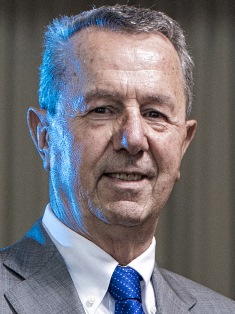
Vladimir Nanut, dean of MIB-School of Management, president of the Italian Association for Management Development (ASFOR), Italy
I think that the role of CEEMAN is still very important. As I look back 25 years, I realize how important CEEMAN was for many institutions in the countries that left the former economic system and joined the market economy. It was very important that CEEMAN helped those institutions learn about the market economy. CEEMAN was a point where everybody could meet other colleagues and representatives of Western countries. I always remember the words of Danica Purg: “Look to the West, learn from the best, and leave the rest”. That means that everybody had an opportunity to benchmark, to understand what kind of experiences came from Western countries. CEEMAN really helped the East European countries train and prepare for the challenges.
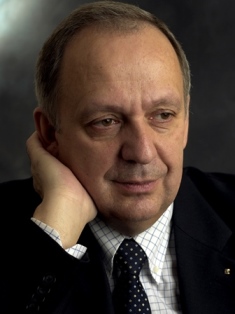
Sergey Mordovin, rector of the International Management Institute St Peterburg (IMISP), Russia
For me personally, CEEMAN is a team of my good friends. Then, it is an association of management development. As to social responsibility and the mission of CEEMAN, I do believe that this is probably the only association which tries to follow its mission without being too formal. It is pragmatically oriented toward helping its members.
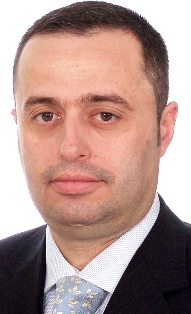 Gazmend Haxhia, president of ACMS and ASG, Albania
Gazmend Haxhia, president of ACMS and ASG, Albania
To me CEEMAN means quite a lot. I have seen growth on two levels: on the board level and on a personal level. On the board level, I have received a lot of advice and I have contributed quite a lot. So, as a board member, I feel pretty active and I have received the same thing back. I see the role of CEEMAN as a very strong and proactive change agent and entrepreneurial contributor to what management education is in the world, and in this region especially. So I believe its role is positive and very much needed. But it is really high time for its role to change a little to reflect the changes around the world.
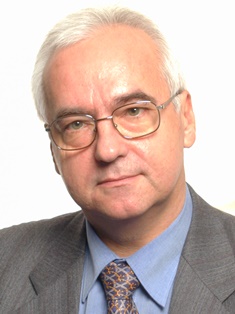 Witold Bielecki, Kozminski University, Poland
Witold Bielecki, Kozminski University, Poland
That is a good question and it regards not only CEEMAN but all associations that give accreditation to business or management schools. Sustainable and responsible development is a real opportunity for the contemporary world. Business schools play a very important role in teaching a sustainable approach. So I think that from this point of view the support that CEEMAN gives to responsible education is very important. And from this point of view, for me the role of such organizations as CEEMAN, which is a PRME's co-founder, is undeniable.
 Seán Meehan, Martin Hilti professor of marketing and change management, IMD Lausanne, Switzerland.
Seán Meehan, Martin Hilti professor of marketing and change management, IMD Lausanne, Switzerland.
CEEMAN has always been ahead of its time and it is an incredibly progressive organization because of the specific environment in which it was born. I think that the really interesting thing now is that the world of so-called mature markets is caching up in terms of dynamism and the amount of change that has been going on and the resetting is actually astonishing. And interestingly, what we have in CEEMAN are societies and the institutions serving those societies in which the role of commerce is pretty critical in helping societies flourish. We now must analyze the role of commerce in mature societies, given the very dramatic changes that are happening in 2017. We can envision a very turbulent time for the next few years. It is very interesting that business schools and associations like CEEMAN that bring management thinking together are so important as they address difficult problems and help students figure out their position in relation to critical issues.
CEEMAN brings together people from very different countries, but what they have in common is that they are dynamic societies.
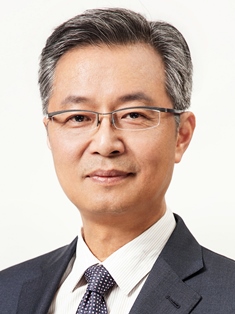
Wu Xiaobo, dean of the School of Management of Zhenjiang University, China
I think that CEEMAN is unique, especially for emerging economies, which can also be called rising economies. These countries are rising very quickly, while experiencing a period of social transitions management skills are changing. And we see CEEMAN where all members are working together closely to cope with the changes. So this is something unique in adapting management education. This is important and different from what AACSB and EFMD are doing. China is also a rising economy. So, CEEMAN is very much worthwhile in this context.
By Maja Cestnik